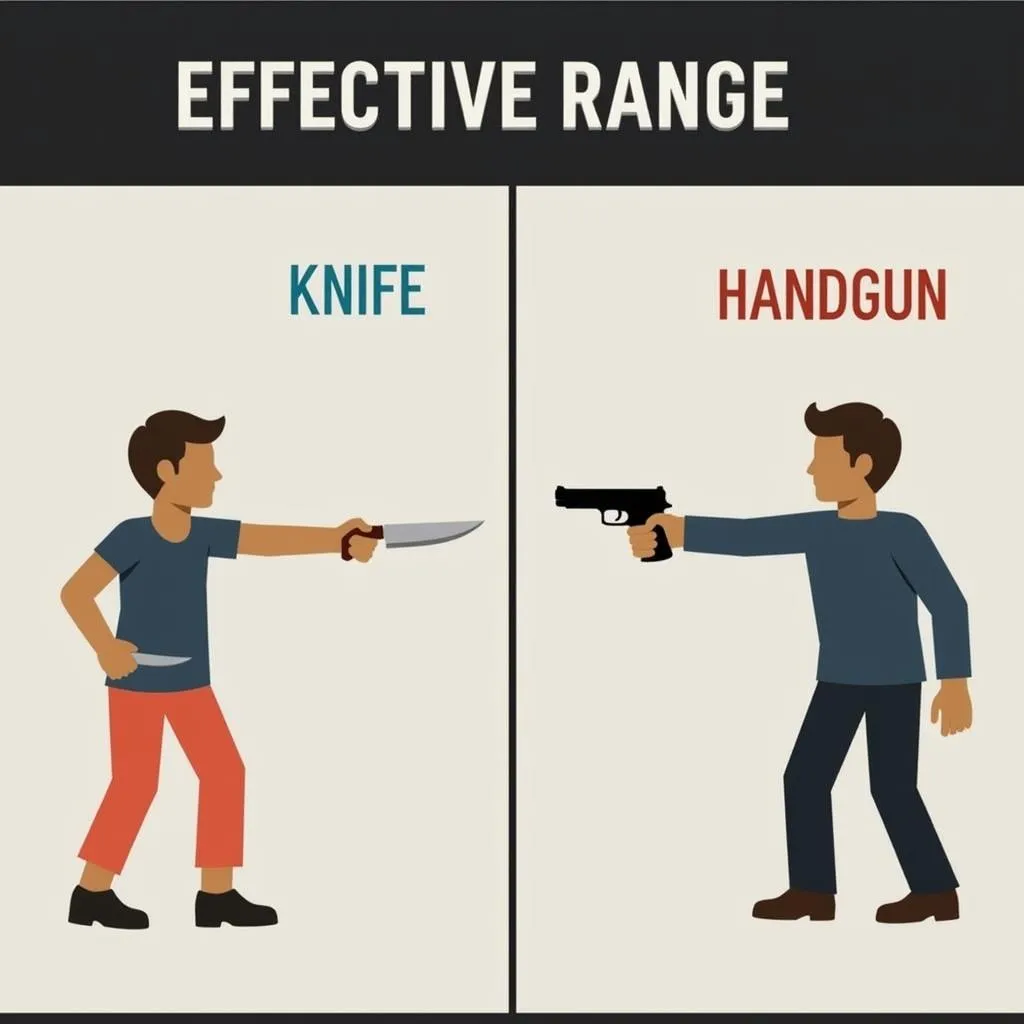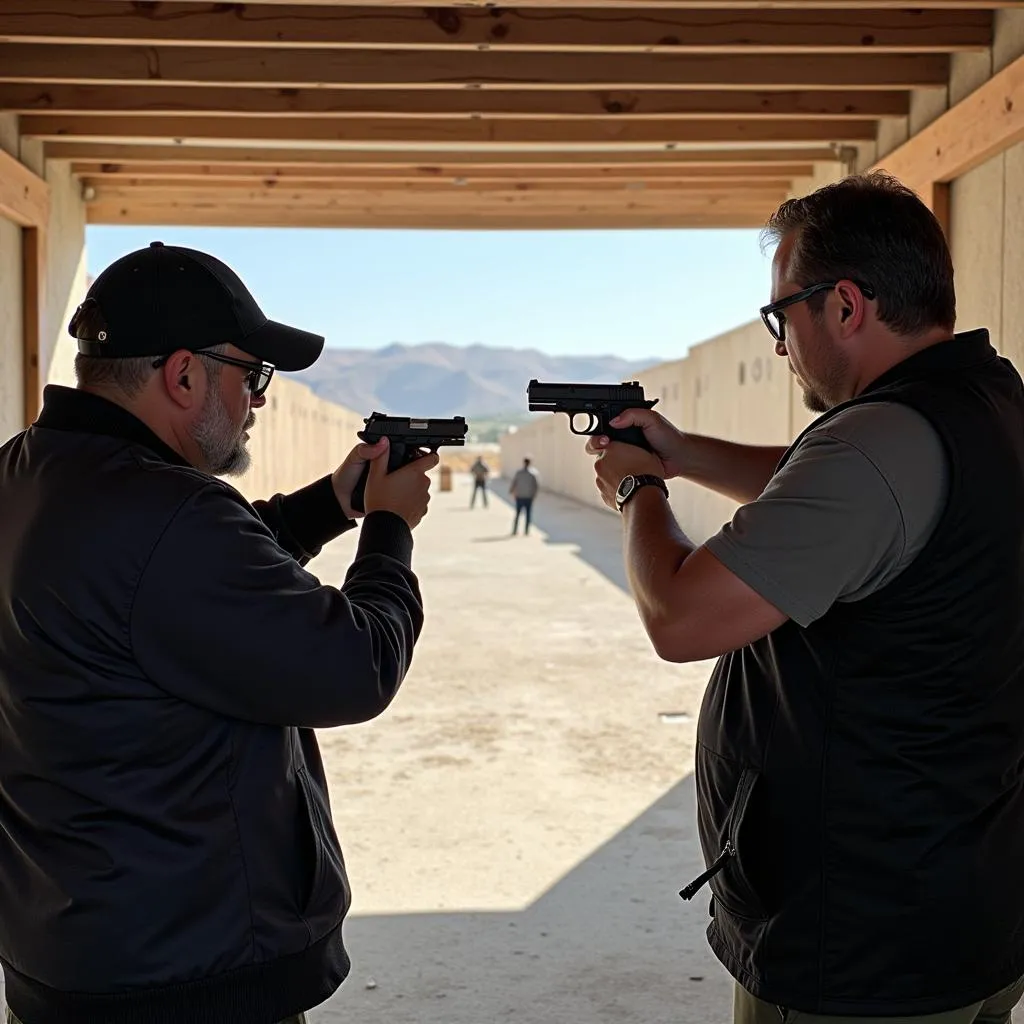Knife vs. Gun: Which is More Effective in a Fight?
October 9, 2024The age-old debate of “knife vs. gun” sparks heated discussions, often fueled by misconceptions and Hollywood dramatizations. While both weapons can inflict lethal damage, understanding their practical differences in a fight scenario requires a nuanced approach that considers factors beyond mere firepower.
 Knife vs. Gun Range Comparison
Knife vs. Gun Range Comparison
Range and Engagement Distance: The Deciding Factor
The most significant difference between a knife and a gun lies in their effective range. Guns, particularly handguns, excel at engaging targets from a distance, offering the user a significant advantage in maintaining space and controlling the engagement. Knives, being close-quarters weapons, require the user to bridge the distance and engage in direct physical confrontation.
 Close Quarters Combat with a Knife
Close Quarters Combat with a Knife
Lethality and Stopping Power: A More Complex Equation
While guns generally possess higher stopping power due to their projectile velocity, assuming lethality solely based on weapon type is an oversimplification. Knife wounds, particularly to vital organs, can be instantly fatal, and the element of surprise often plays a crucial role in knife attacks. Conversely, a gunshot wound doesn’t guarantee instant incapacitation, and factors like shot placement, bullet caliber, and the victim’s physical resilience significantly influence the outcome.
Psychological Impact: Fear and Hesitation as Weapons
Both knives and guns wield significant psychological impact. The sight of a gun often evokes immediate fear and compliance, acting as a deterrent even without a shot fired. Knives, however, are often perceived as more personal and intimate weapons, potentially leading to heightened aggression and brutality during an attack.
Training and Skill: Mastering the Tools of Engagement
Proficiency in using both knives and guns requires dedicated training and practice. Effective gun handling involves marksmanship, recoil management, and tactical movement, while knife fighting necessitates understanding leverage, pressure points, and defensive maneuvers. The skill level of the individual wielding the weapon significantly impacts their effectiveness in a fight.
 Gun Safety and Handling Training
Gun Safety and Handling Training
Legal Implications: Navigating the Complexities of Self-Defense
The legal ramifications of using a knife or a gun for self-defense vary significantly depending on jurisdiction and specific circumstances. Generally, the use of lethal force is only justifiable when facing an imminent threat of death or grievous bodily harm. Understanding the legal framework surrounding self-defense is crucial to avoid potential legal consequences.
Conclusion: Choosing the Right Tool for the Situation
The “knife vs. gun” debate lacks a definitive answer as both weapons possess distinct advantages and limitations. Choosing the right tool for self-defense depends on individual circumstances, legal considerations, and a realistic assessment of one’s training and abilities. Prioritizing personal safety involves understanding the complexities of both weapons and seeking professional training to develop the necessary skills for effective self-defense.
FAQs:
- Is a knife or a gun better for home defense? This depends on factors like your comfort level with each weapon, your home layout, and local laws.
- Can I legally carry a knife or a gun for self-defense? Laws vary significantly by location. Research and understand your local regulations.
- What type of training is best for knife or gun defense? Seek out reputable instructors who emphasize realistic scenarios and legal considerations.
Need Help? Contact Us:
For expert advice on personal safety and self-defense, contact us at:
Phone Number: 0915117117113
Email: [email protected]
Address: Tổ 3 Kp Bình An, Phú Thương, Việt Nam, Bình Phước 830000, Việt Nam
Our 24/7 customer support team is ready to assist you.